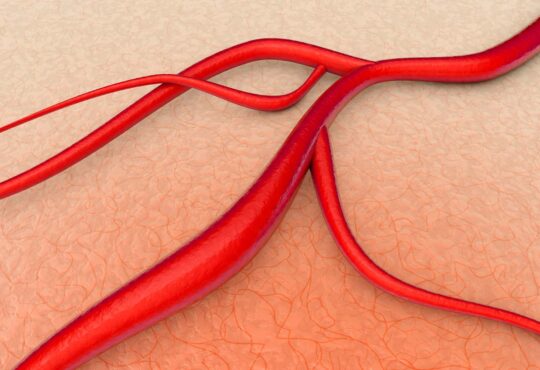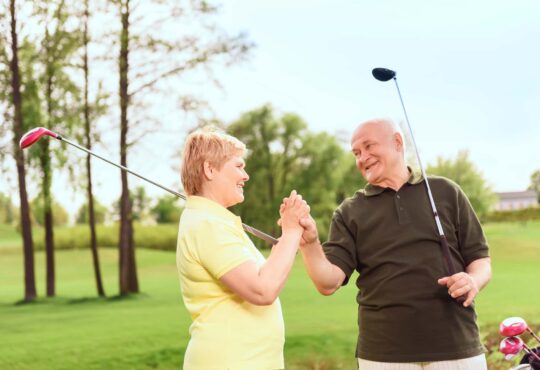
You’re already luckier than average with your health.
And you can learn to increase your good luck.
I don’t know that because I’m psychic.
It’s based on the research of psychologist Dr. Richard Wiseman. He studied what kinds of people are lucky, what kinds unlucky.
He discovered basic ways lucky and unlucky people are different in their personalities.
Even better, he’s learned how you can change your beliefs and mindset to attract more luck into your life – including your physical and mental health.
According to his findings – and others – people who believe they’re unlucky ARE unhealthier than average.
They suffer more weight gain, more adverse cardiovascular events, more cancer, more diabetes, more alcoholism, more depression, more insomnia and even more suicide.
They believe they have no control over these events. They may believe it’s the stars, Fate, lines on their palms or other superstition.
They EXPECT bad luck to happen to them.
Dr. Wiseman asked both lucky and unlucky experimental subjects to score the likelihood such health problems would occur in their future.
Lucky people rated the odds of experiencing health problems much, much lower than people who consider themselves unlucky.
Lucky people expect good things, including good health, to continue to happen to them far into the future.
Lucky People Expect Good Luck, Not Magic
That is, they don’t believe good health just passively “happens.”
Because they believe good health is possible for them, they eat well, they exercise, they get preventative healthcare and follow medical advice.
On the other hand, unlucky people DO take a passive approach. That’s because they expect bad health to happen to them no matter what they do – so why follow advice?
Dr. Wiseman found unlucky people don’t even try to quit smoking, eat a healthy diet or exercise. They don’t go to the doctor for checkups.
Therefore, is it any wonder lucky people have better health in general than unlucky people?
And that’s why I said you’re already lucky, at least when it comes to health. That’s because you’re reading this article. That proves you understand more than most people you have control over your health.
What you do and what you don’t do, makes a big difference.
So does what you believe – and what you expect.
The Finnish Study of 2000
Researchers divided the subjects into three groups, based on their expectations about their future health: positive, neutral and bleak.
They then followed the subjects and their medical issues.
At the end, there was a clear direct relationship between expectation and experience.
That is, the men who had “bleak” expectations of their future health had more deaths from cancer, heart disease and accidents than the “neutral” group.
And the men in the “neutral” group had more deaths from all those causes than men in the “positive” group.
To a large degree, these men got the health futures they expected.
Unlucky People are More Anxious Than Lucky People
Too much anxiety puts us at greater risk of having an accident.
That could easily be one of the direct ways expectation affects our health.
Anxiety Also Lowers Immune System Strength
Our immune systems protect us from infectious diseases and internal problems such as cancer.
But stress lowers your immune system’s strength – and chronic anxiety is quite stressful.
Therefore, it’s not unreasonable to connect a stress-weakened immune system to higher rates of infections, cancer and autoimmune diseases.
Who is Dr. Richard Wiseman?
He’s a stage magician turned psychologist who – by a stroke of good luck described in the book – discovered some people are incredibly confident events in their lives will always work out well for them.
Of course, we all know some people who’re convinced God or karma or the Flying Fickle Finger of Fate has it in for them. That means they’ll never get what they want out of life. Whatever they try, it will fail. So why try?
What makes the difference? Dr. Wiseman wondered.
And is it something we can control? Can we learn how to increase our good luck?
For years, Dr. Wiseman carried out experiments on many both self-labeled “lucky” and “unlucky” people.
The questionnaire asking people to guess the chances of contracting terrible health problems was one such experiment.
Some of Dr. Wiseman’s Findings that Apply to Improving Your Health
1. Lucky people maximize their chance and opportunities.
Maximize your sources of good health information. Read books and articles, watch videos and listen to podcasts.
Implement good advice. You’ll see the gurus argue – so focus on the ones who know their science.
Also, maximize your implementation. Don’t just eat a good diet or take a few walks. Eat a good diet AND exercise AND sleep 7-9 hours every night AND manage your stress AND . . .
Make all those things your permanent lifestyle.
2. Lucky people listen to their hunches.
In the realm of health, that’s what your body is telling you. If you need to exercise, follow the feeling. If you’re too tired, rest. When you’re full, stop eating.
The day before he died in his sleep of pneumonia, Jack Lalanne completed his usual two-hour workout. But I bet the infection made him feel lousy – and if he’d acknowledged that and taken a nap instead, he’d probably still be alive. Or, if he’d listened to his wife and gone to the doctor. (Lucky people also listen to their wives!)
3. Lucky people expect good luck to continue.
So, keep implementing all the good health advice you find.
4. Lucky people turn negative events into good luck – even if it takes time.
Got a health problem? Find out what you need to do to reverse it – and do it. Soon you’ll be healthier than ever.
The Luck Factor by Richard Wiseman
https://www.youtube.youtube.com/watch?v=wHup4N2_Wv0&t=3s
https://www.youtube.youtube.com/watch?v=Ra-6PDo93Ts
https://www.youtube.youtube.com/watch?v=lSPfCBm_7Co
https://www.youtube.popsci.com/luck-real/
https://www.youtube.inc.com/terence-mauri/want-more-luck-science-says-do-these-3-things-every-day.html
https://www.youtube.youtube.com/watch?v=WdRKrMVU840







